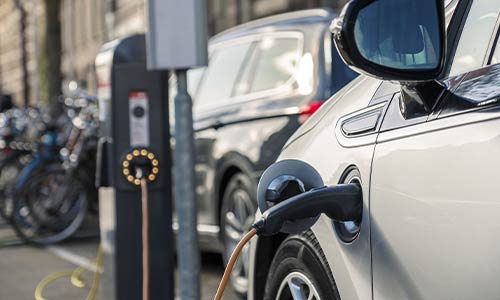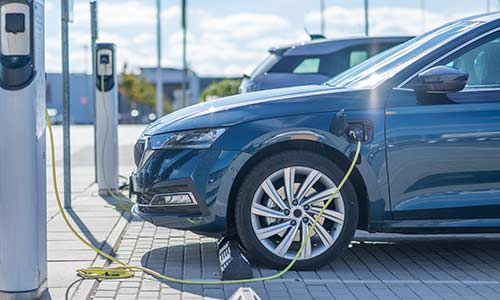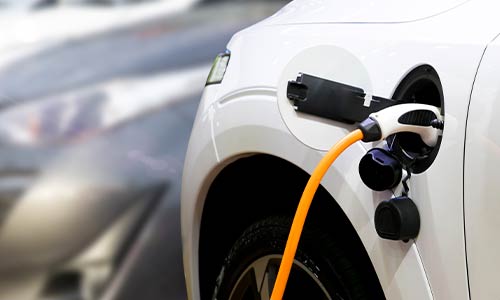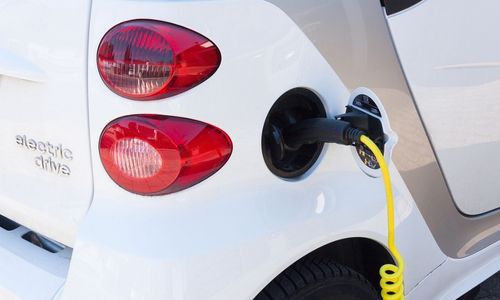
Electric car battery life explained
Last updated February 10, 2023
Electric cars have soared in popularity over the last ten years, with millions of drivers swapping their petrol or diesel cars for an eco-friendly electric model.
As electric car technology has evolved, drivers have benefited from the longer battery life offered by newer models. This has allowed drivers to enjoy longer trips in their electric cars, with fewer charging stops. What’s more, the greater availability of charging infrastructure is also helping to allay the ‘range anxiety’ felt by some current or prospective EV drivers.
So, how long can you expect an electric car battery to last?
In this guide, we will outline the various factors that can affect EV battery life, how to get the most out of yours – and what you should do when the time comes to replace your electric car battery.
Value your car in under 30 seconds
How long do electric car batteries last?
Most manufacturers believe an electric car battery should last between 10 and 20 years before it needs replacing. However, the exact lifespan of an electric car battery will vary from one model to the next based on differences in size, capacity, the driver’s charging habits - and how much they use their vehicle.
How do EV batteries work?
Most electric car batteries are much larger versions of the same Li-ion (or lithium-ion) batteries that are used to charge popular electronic devices, such as smartphones and computers. However, while these smaller items use just one battery, the batteries in electric vehicles feature thousands of Li-ion cells, all working together to generate the energy needed to power a car.
Why do electric car batteries degrade?
Regularly repeating the charging cycle will affect an electric car battery’s capacity and quality over time. Therefore, if you charge your EV every night, you’ll eventually start to notice that it doesn’t hold its charge quite as well as it once did.
Additionally, exposure to extreme temperatures can accelerate degradation as the battery’s chemistry is thrown out of balance and its cells become less efficient at storing energy. Other factors such as excessive vibration or prolonged periods of disuse can also contribute significantly towards battery degradation over time.
How much does it cost to replace an EV battery?
The cost of replacing an electric car battery depends on the type and size of your battery and how old it is when you need to make a replacement. Prices may vary from £2,000 up to £8,500 (or more) depending on the car model and the size of your vehicle’s battery. Larger, more powerful vehicles generally use more expensive batteries.
Warranties and electric car batteries
Generally speaking, if you purchase a brand-new electric vehicle, the battery will be included in its warranty. The conditions of warranties are set by the manufacturer – and these will vary depending on the make and model.
However, if you need to replace your battery within 4 years or 50,000 miles of ownership (whichever comes first) through no fault of your own, most manufacturers should cover the cost for you.
What happens when electric car batteries die?
Towards the end of an electric car battery’s life, you’ll start to notice that it isn’t working as well as it once did. Losing charge faster and never reaching full capacity are two common signs that a battery will soon need replacing.
If you have started experiencing these problems regularly, your battery could be about to die, so it’s important to decide what to do next.
Is it worth it to replace the battery in an electric car?
If your battery needs replacing before it has reached the end of its expected lifespan, but is no longer covered by your warranty, you'll need to decide whether its worth replacing. Whether or not this is cost-effective generally depends on the potential cost to replace the battery, how soon you are having to replace it - and the value of your vehicle.
For example, if your battery replacement isn’t covered by your warranty, but the vehicle is only a few years old and otherwise in good condition, it’s generally worth replacing the battery.
However, with older EVs, the cost of replacing the battery may outweigh that of buying a new vehicle. When this is the case, the best option may be to sell your car and put the proceeds of the sale towards a newer, more reliable model.
Can you recycle your electric vehicle battery?
There are several companies in the UK that specialise in recycling electric car batteries, most of which offer collection services or accept them at their facilities.
Due to the materials they are made from, it’s important that all electric car batteries are disposed of properly. If you’ll need to dispose of yours soon, look online and find out which companies deal with recycling electric car batteries near you.
What affects electric vehicle battery life?
Overcharging tends to be the most common cause of electric car batteries degrading prematurely. To keep your battery in good condition, you should always charge your vehicle in line with the manufacturer’s instructions - and only charge as needed.
Repeating the charging cycle more than you need to will quickly take its toll on the quality of your EV battery. You should not charge your battery to full capacity every night.
Does rapid charging affect your battery life?
The rapid charging points commonly found at service stations are not designed for consistent use; they are just intended for topping up your battery during long journeys. Rapid charging too often can affect your electric car battery life.
However, if used judiciously, most experts believe that rapid chargers won’t have any negative impact on the lifespan of your vehicle’s battery.





